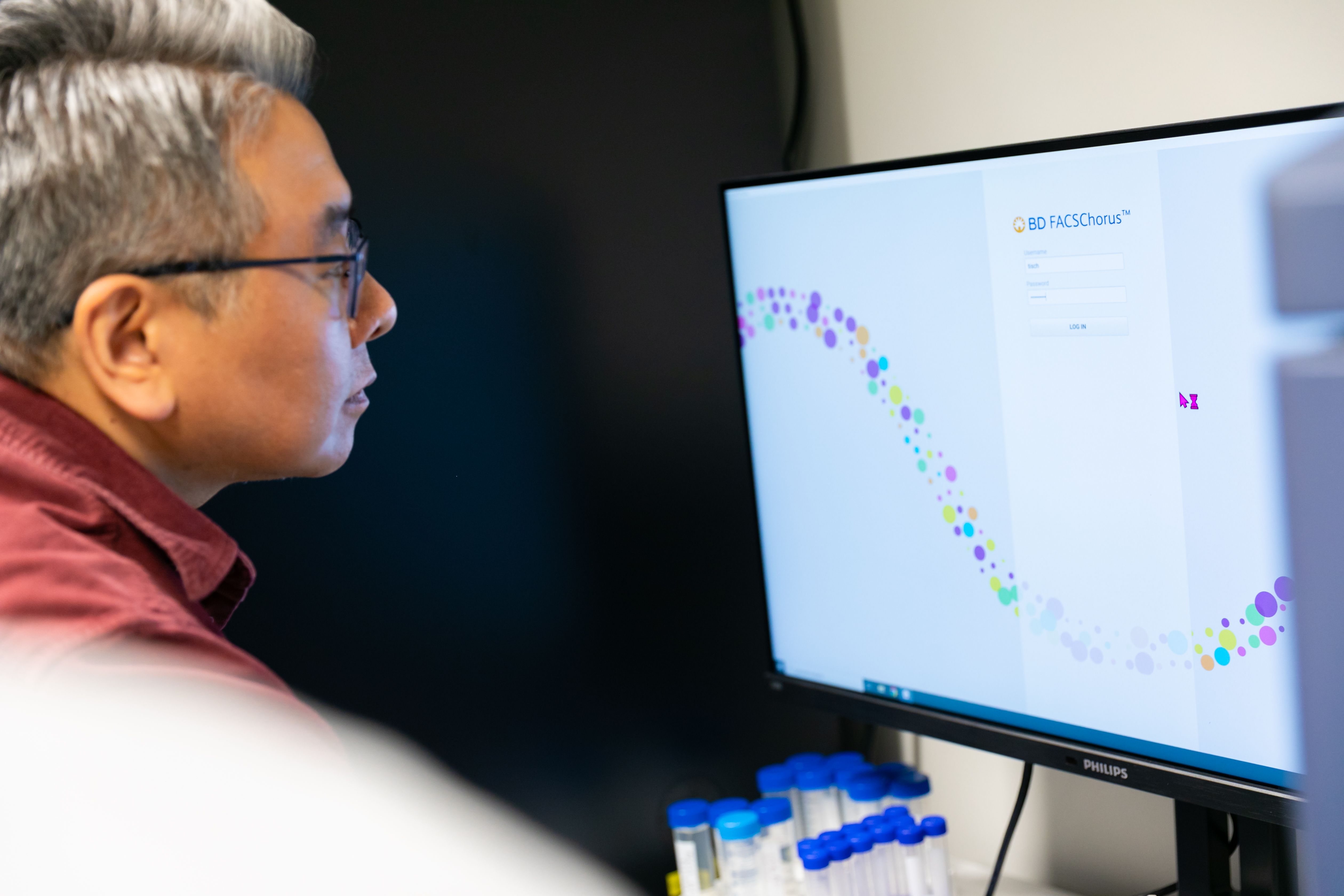
What is Multiple Sclerosis?
MS is a chronic disease that affects the central nervous system
2.8 million
People are living with MS worldwide
300
People every day receive an MS diagnosis
80%
Of people with MS report living with symptoms that affect quality of life
Multiple sclerosis (MS) is a chronic disease of the central nervous system that affects the brain, optic nerves, and spinal cord. MS is also an autoimmune disorder, meaning that the patient's own immune system attacks their nerve tissue.
MS is characterized by the destruction of the myelin sheath, a layer of insulation that surrounds nerve cells and serves the dual purpose of strengthening nerve signals and protecting the fibers that connect nerve cells to each other. As myelin breaks down, lesions appear and form hard plaques, or sclerosis, which give the disease its name.
The initial phase of the disease is called relapsing-remitting MS (RRMS). In RRMS, patients alternate between inflammatory autoimmune attacks and periods of remission and partial recovery. RRMS can be followed by a progressive phase of irreversible nerve degeneration, called secondary progressive MS (SPMS). In some patients, the disease is progressive from the onset, called primary progressive MS (PPMS). These destructive processes cause a variety of symptoms including blurred vision, loss of balance, poor coordination, slurred speech, tremors, numbness, extreme fatigue, problems with memory and concentration, paralysis, blindness, and irregular function of the bowels, bladder and sexual organs. At present, there is no full understanding of the cause and mechanism of the disease.
Tisch MSRCNY is at the forefront of advances in the field of neuroimmunology and is determined to discover the cause of, and the cure for, MS.

Symptoms
Fatigue
MS fatigue is distinct from other feelings of tiredness. It can occur daily, be long-lasting, and interfere with daily tasks.
Pain and Itching
Because MS affects the central nervous system, patients often experience both neuropathic and musculoskeletal pain.
Mobility Issues
Difficulty walking, weakness, reduced proprioception, and muscle spascity can affect mobility and autonomy.
Numbness or Tingling
Persistent pins-and-needles sensations are one of the most common early symptoms of MS.
Cognitive Changes
MS can increase anxiety and depression, and affects high-level brain functions like memory and information processing.
Vision Impairment
Optic neuritis, diplopia, and nystagmus can affect people with MS.
In Pursuit of a Cure

Research at Tisch MSRCNY
Research at Tisch MSRCNY approaches MS from all angles: working to find a root cause, investigating mechanisms of disease progression, and therapeutic options to promote repair and regeneration at the cellular and molecular levels.
Learn More
